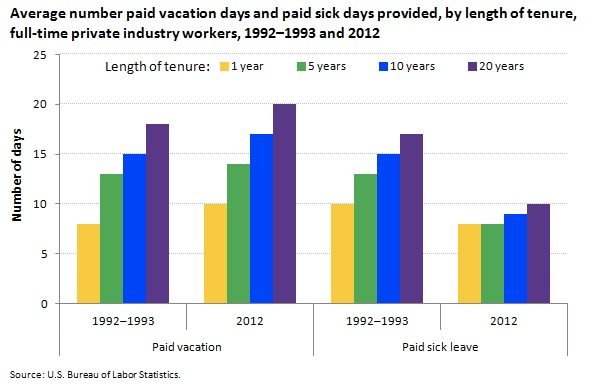October 9, 2014; CBS New York
New Jersey lawmakers gathered last Thursday to discuss whether the paid sick leave law already in effect for Jersey City, Newark, Paterson, and a few other cities should be expanded statewide. The vote has been postponed.
According to the current city laws, which took effect in Jersey City this past January, employees with 10 or more employees are required to provide one hour of paid sick leave for every 30 hours an individual works. Workers for small employers can accrue up to 40 hours annually of sick leave, or five days, and up to 72 hours for individuals at larger employers.
The Labor Department reported last year that as of 2012, while three in four full-time workers had access to paid sick leave across the country, only one in four part-time workers did.

The discussion of the proposed bill was met vigorously in the crowded room with both support and opposition, even after the vote had been postponed.
As when some cities originally passed the mandate, supporters believe the expansion of the law would be helpful for the mental, emotional, and physical wellbeing of lower income workers, who often cannot afford to take days off when they are ill. “An earned sick day standard will boost our state’s working families’ economic and personal health,” said Phyllis Salowe-Kaye, executive director of the NJ Citizen Action group.
Sign up for our free newsletters
Subscribe to NPQ's newsletters to have our top stories delivered directly to your inbox.
By signing up, you agree to our privacy policy and terms of use, and to receive messages from NPQ and our partners.
Jersey City Mayor Steven Fulop has been enthusiastic about the positive effects the law has had in the community. “There are countless examples of families it has helped, working families,” Fulop said. Jersey City’s passing of the law inspired other cities with prominent low-income communities, like Newark and East Orange, to adopt similar laws.
On the other hand, conservative business groups still oppose the law as detrimental for the state’s economy, as they believe businesses looking to avoid the mandate and its added responsibility will relocate to a different state. “It is not that AFP is against [the concept]. We are against the mandate of it. It is mandates like these that make me question opening a business of my own in New Jersey,” said Danielle Cyr of the New Jersey branch of Americans for Prosperity, a conservative political advocacy group.
Fulop noted that the anticipated negative effect on businesses had not been observed in Jersey City. “Despite what people said, that the business community would suffer, our unemployment rate…has dropped faster than any other urban area in the region.”
As noted by NPQ, the discussion comes a few weeks after California passed a statewide law requiring all employers—including nonprofits, regardless of size—to provide paid sick leave for their employees beginning on July 15, 2015.
While cities elsewhere in the nation, including Washington D.C., New York City, Seattle, and Portland have passed similar mandates, if this bill passes, New Jersey would become only the third state behind California and Connecticut with a statewide law. Massachusetts’s residents will be able to vote in the upcoming midterm elections on Ballot Question 4 to pass a nearly identical law.
Dan Clawson and Naomi Gerstel’s in-depth look at the reality of not having paid sick time gives credence to Mayor Fulop’s enthusiasm for the law in his city. Clawson and Gerstel found in their report for WBUR that those whose employers do not provide paid sick leave as a benefit often face difficult situations, having to choose between their health or caring for a loved one and keeping their jobs. The report found one instance at a nonprofit nursing facility where workers were fired after one absence from work, regardless of the circumstances. Worse yet, the report found this practice is prevalent in the healthcare industry—one of the fastest growing industries in the country.
As discussion goes on in the New Jersey Senate, as it undoubtedly will in cities across the country, Trenton and Montclair, New Jersey, will be deciding whether to implement paid sick leave laws in their cities next month.—Shafaq Hasan













